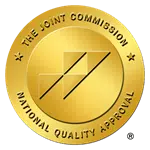Challenges Families May Face
When a loved one is struggling with addiction, families often face numerous challenges in moving forward with an Intervention. These may include:
1. Emotional Turmoil: Addiction can cause intense emotional turmoil within the family. Family members may experience feelings of anger, frustration, guilt, shame, and helplessness. They may also face emotional instability as they witness their loved one’s destructive behavior and struggle to understand and cope with it.
2. Communication Breakdown: Addiction can lead to a breakdown in communication within the family. Trust may be eroded, and open and honest conversations may become difficult. Misunderstandings, arguments, and conflicts can arise as family members try to navigate the complexities of addiction.
3. Codependency: Codependency is a common challenge in families dealing with addiction. Family members may unintentionally enable the addictive behavior by trying to protect their loved one or maintain a sense of control. This codependency can hinder the recovery process and perpetuate the cycle of addiction.
4. Financial Strain: Addiction can impose a significant financial burden on the family. The costs associated with substance abuse, such as medical expenses, therapy, legal issues, and lost income, can strain the family’s finances and create additional stress and anxiety.
5. Disruption of Family Dynamics: Addiction disrupts the normal functioning of the family. Roles and responsibilities may shift, and the focus often becomes centered around the addicted individual. Other family members may feel neglected or overshadowed, leading to feelings of resentment and frustration.
6. Social Stigma and Isolation: Families dealing with addiction may face social stigma and judgment from others. This can lead to feelings of shame and isolation, causing the family to withdraw from their social support networks and further exacerbating the challenges they face.
7. Mental and Physical Health Issues: The stress and strain of dealing with a loved one’s addiction can take a toll on the mental and physical health of family members. Anxiety, depression, sleep disturbances, and physical ailments may arise as a result of the constant worry and emotional upheaval.
8. Lack of Knowledge and Resources: Families may face challenges in understanding addiction and finding appropriate resources for help. They may struggle to navigate the complex treatment system, locate support groups, or access adequate professional help, which can prolong the recovery process.
9. Relapse and Uncertainty: Recovery from addiction is often a long and challenging journey, and relapse is a common occurrence. Families may face the uncertainty of whether their loved one will maintain sobriety or experience setbacks, adding to their stress and anxiety.
10. Impact on Children: When addiction affects a parent or caregiver, children in the family can be significantly impacted. They may experience emotional distress, instability, and neglect, which can have long-term effects on their well-being.
It is important for families to seek support and resources to navigate these challenges. Therapy, support groups, education about addiction, and self-care are crucial in helping families cope and support their loved one’s recovery.

Excuses or Reasons to Avoid Seeking Professional Help
When individuals are struggling with addiction, they may come up with various reasons or excuses to avoid seeking professional help. Some common reasons/excuses include:
1. Denial: Many people in the grip of addiction deny or downplay the severity of their problem. They may convince themselves that they have control over their substance use or that it is not as serious as others perceive it to be.
2. Fear of Stigma: There is still a social stigma surrounding addiction and seeking help for it. Individuals may be afraid of being judged, labeled, or treated differently by others if they admit they have a problem and need professional help.
3. Fear of Consequences: People struggling with addiction may fear the consequences of seeking professional help, such as potential legal issues, loss of employment, or damaged relationships. They may worry about the impact on their reputation or the disruption it could cause in their life.
4. Minimizing the Problem: Some individuals may minimize the extent of their addiction, believing that they can control it or stop on their own whenever they choose. They may convince themselves that they do not need external intervention or treatment.
5. Fear of Change: Going to rehab often requires significant lifestyle changes and leaving familiar environments. Individuals may be afraid of the unknown, the challenges of rehabilitation, and the adjustments they would have to make in their daily lives.
6. Financial Concerns: The cost of professional help, such as rehab programs or therapy sessions, can be a barrier for many individuals. They may feel they cannot afford the expenses associated with treatment or worry about the financial burden it may place on them or their families.
7. Lack of Support: The support of loved ones can be crucial in the recovery process. Some individuals may feel they lack a strong support system or that their loved ones do not understand or believe in their ability to recover. This lack of support can make it challenging for them to seek professional help.
8. Previous Failed Attempts: If someone has previously tried and failed to overcome their addiction, they may feel discouraged and believe that professional help will not make a difference. They may use past failures as an excuse to avoid seeking help again.
9. Fear of Detoxification and Withdrawal: The fear of experiencing withdrawal symptoms can be a significant deterrent for individuals seeking professional help. They may be apprehensive about the discomfort and potential complications associated with detoxification.
10. Belief in Self-Management: Some individuals may have a belief they can handle their addiction on their own or through self-help methods. They may underestimate the complexity of addiction and the need for professional guidance and support.
It is important to approach individuals struggling with addiction with empathy and understanding. Providing education about the benefits of professional help, addressing their concerns and fears, and offering support can help them overcome their resistance and consider seeking the help they need.



















